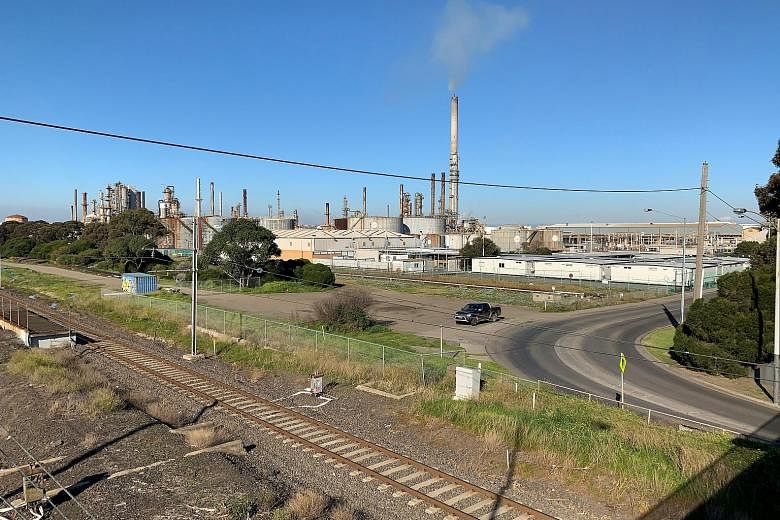HOUSTON • Ill-timed bets on rising demand have ExxonMobil facing a shortfall of about US$48 billion (S$65.7 billion) until the end of next year, according to a Reuters tally and Wall Street estimates, a situation that will require the top United States oil company to make deep cuts to its staff and projects.
Wall Street investors are even starting to worry about the once-sacrosanct dividend at Exxon, which in the 20th century became the world's most valuable company using global scale, relentless expansion and strict financial controls.
Exxon weathered a series of setbacks last decade, and under chief executive Darren Woods sought to return to its past prominence with big bets on US shale oilfields, pipelines and global refining and plastics. It also bet big on offshore Guyana, where it discovered up to eight billion barrels of oil - six years of production, at its current rate.
But Exxon's ability to finance that global expansion is no longer assured. This year, the company borrowed US$23 billion to pay its bills, nearly doubling its outstanding debt. In July, it posted its first back-to-back quarterly losses. It faces a full-year US$1.86 billion loss, according to Refinitiv, excluding asset sales or write-downs.
The looming shortfall of about US$48 billion was calculated using cash from operations, commitments to shareholder payouts and costs of the massive expansion programme Exxon had planned.
Now the company is embarking on a worldwide review of where it can cut expenses, and analysts believe the once-unthinkable dividend cut has grown more likely.
This year's sharp drop in oil demand and pricing has shredded Mr Woods' plan to spend at least US$30 billion a year up to the end of 2025 to revive production and earnings by expanding oil processing, chemicals and production, and by taking a commanding role in US shale and liquefied natural gas, markets that then looked promising.
Instead, he must prepare Exxon to operate in a world of weaker demand for its oil, gas and plastics.
The company has been dropped from the Dow Jones index of top US industrial companies after 92 years.
It is exposing up to 10 per cent of US staff to harsh reviews that could push thousands out of the company, and is taking away lavish retirement benefits that had career employees staying 30 years on average.
Exxon declined to make an executive available for an interview, and a spokesman said details of cost cuts would be disclosed early next year.
"We remain committed to our capital allocation priorities - investing in industry advantaged projects, paying a reliable and growing dividend, and maintaining a strong balance sheet," said spokesman Casey Norton.
A review of projects now under way aims to "maximise efficiency and capture additional cost savings to put us in the strongest position" as energy markets improve, he said.
Oil prices have dropped 35 per cent from the start of this year as demand collapsed during the Covid-19 pandemic. BP, Royal Dutch Shell, Total, Repsol and others have cut billions of dollars off the value of their oil and gas properties, something Exxon has yet to do.
The European majors are also adding renewable energy and electricity to their portfolios, a hedge against permanently reduced oil and gas demand. BP plans by 2030 to reduce its fossil fuel production by 40 per cent.
Exxon's cash from operations - estimated at about US$17.4 billion this year - is US$20 billion below the funds needed for this year's investment plan and shareholder dividend, a Reuters analysis showed.
The company's stock price closed last Friday at US$39.08, off 56 per cent since Mr Woods became CEO.
Exxon must cut its dividend if the share price remains depressed, said Mr Mark Stoeckle, senior portfolio manager at Adams Funds. "Something has to give. Wherever the give comes, (it) hurts management credibility," he said.
REUTERS

